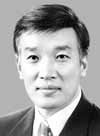[CEO Column} We need to nurture autonomous-creative thinking.
[CEO Column} We need to nurture autonomous-creative thinking.
Posted July. 13, 2001 09:40,

It happened while I was teaching at a college in America. One day in early semester, a Korean international student came to me for a consultation with deadly pale face. He, a bright young man who had been a valedictorian at a prestigious college in Korea, was a doctoral student at the college where I taught.
The first class he attended was an introduction session for a class taught by an American professor. The requirement for the class was, instead of a final exam, to submit a paper as a final project with an open topic and without page limit. ``What does he want me to do?``, the gifted-man asked. ``He wants you to do whatever you want to do with your own thought.`` ``Excuse me?.`` He confessed that he even had memorized the answers for math questions. He was a valedictorian, a product of private tutors based on a homogeneous study. It was a shock for me to see such decorated student to be without much depth.
Whenever I have the opportunity to explain why we fail to be an advanced country, I (author) naturally speak of this student. In the past, we could achieve the `miracle of the Han River` with a spirit of the `advance without rest`. We could accomplish a dreamlike miracle with a military and standardized style educational method, the natural sincerity, and the diligence with which we could work several day and nights without sleeping.
However, it is time to change the definition of giftedness. Priority has to be given to the autonomous and creative mind. Of course, to produce an `advanced ` prodigy is not an easy task. To raise this kind of prodigy, first, the education system has to be changed.
The characteristic of Korean education can be summarized as cramming, memorizing, and one-out-of-four multiple choice. The education system, in which students cannot solve the problem without a guideline, or when the tests are not in the form of multiple choices, has to be reformed. With this kind of education system, it is impossible to nurture people equipped to face the demands of the 21st century.
Yet, it is not a problem only related to education only. The culture and climate of business must be changed as well. It reminds me of a scene from an old film. It was a story about an elderly man who had been imprisoned for his whole life. After he was released on parole, the man works as a helper at a supermarket. The manager of the supermarket yells at the man who asks for permission whenever he wants to go to the bathroom. One evening, the man considers suicide sneering at himself, ``Now I have become a man unable to urinate without an order.``
The film was illustration of the human condition where this old man had lost the autonomous thinking, tangled by homogeneity. It is same with the business culture. A business culture that esteems autonomy is an essential soil on which creativity can be nurtured.
The company, for which I (author) am the president, is a company that creates 21st century style business ideas to invite domestic and foreign investment. Thus the company is focusing on the adventurous task of promoting a creative work atmosphere. The structure of organization is freestyle. The standard for the annual salary system is based on whether one can demonstrate creative ability. To boost the atmosphere, the `aim management system` has been introduced. Business hours and business trips are determined by people’s independent decision. Rather than a `report and approval system`, a `group decision making system` through brainstorming has been adopted.
To reform the culture of education and business for nurturing autonomy and creativity is not a problem for only companies. It is a puzzle closely related to a nation’s destiny. It is time to concentrate on constructing a new system to nurture the talents of our people, who is our future.
Nam Chung-Hee (CEO of the Centum-City Co.)
Headline News
- Joint investigation headquarters asks Yoon to appear at the investigation office
- KDIC colonel: Cable ties and hoods to control NEC staff were prepared
- Results of real estate development diverged by accessibility to Gangnam
- New budget proposal reflecting Trump’s demand rejected
- Son Heung-min scores winning corner kick







